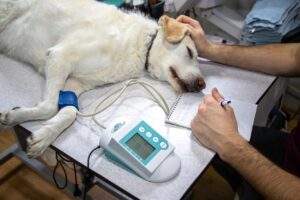Types of Speech Therapy for Different Disorders

Speech Therapy is a therapy that focuses on improving a child’s speech and abilities to understand and express language.
This therapy is helpful for those children who have a speech disability like trouble in pronouncing words or trouble in communication.
Speech therapy clinics helps in improving language development, communication, and pragmatic language skills.
Types of Speech Therapy
If your child has any kind of brain injury, an infection that has affected their ability to communicate, a known disease like Down syndrome, Verbal Apraxia then Speech therapy can help in treating your child.
In this scenario, you might be referred to a Speech Therapist which is also known as a Speech-Language Pathologist. An SLP will help your child in treating problems related to speech, hearing, and swallowing.
Following are some therapies that are used to treat the most common speech-language disorder:
Speech Therapy for Late Talkers
If a child is not talking while in the age where a normal baby started to talk, that child is considered as Late talker.
In this case, the therapist will try different activities or things to encourage your child to talk. Activities like holding your child’s favorite toys until the child asks for it.
In other cases, other types of communication like sign language or picture cards might be introduced by the therapist.
Speech Therapy for Kids with Apraxia
Children who have difficulty in saying certain syllables or making certain sounds might be affected with Apraxia. In Apraxia, the children know what they want to say but it just doesn’t seem to come out right.
In this, the speech therapist might evaluate your children for apraxia by using the following tests:
- Oral-Motor Assessment to check if there is any weakness in the muscles of the Jaw, Lips or Tongue.
- Melody of Speech Assessment, in which the therapist checks if the child can properly stress certain syllables and use of pitch and pauses at the proper place in the sentence.
- Speech Sound Assessment helps in determining the child’s ability to pronounce sounds that include vowels, consonants, and sound combinations. This is to check how well others are able to understand the child’s speech.
Speech Therapy for Stuttering
Stuttering can be developed during childhood or during adulthood as well. It is a type of behavioral problem in which the therapist will try to teach your child some behavioral modification techniques.
A common technique that might be used on your children is to teach them to control the speed of talking or speech. Speaking too quickly may worse the stuttering. Talking slower or in a more fluent manner can be helpful.
It is also helpful in monitor breathing. Some people might require follow-up sessions with their speech therapist even after treatment, to prevent the problem from recurring.
Speech Therapy for Aphasia
If a child has any sort of damage to the brain that leads to difficulty in speaking, it is a condition known as Aphasia. In this condition, a child can also suffer from difficulty in listening, reading, and writing.
In adults, Aphasia can occur usually after a stroke. The therapist diagnoses Aphasia by evaluating the person’s ability to understand others, express themselves, and even swallow. Following are some methods that your therapist might use:
- Drills for improvement of specific language skills.
- Group therapy for improvement of conversation skills.
- Gestures and writing to increase their communication skills.
Speech Therapy for Swallowing Difficulty
In most of the cases, it is found that children with speech disorder also have a feeding or swallowing problem. It is because of both speech and eating are done due to the perfect combination in the movement of Tongue, Jaw, and Lips.
Swallowing difficulty occurs due to lack of combination in the movements of jaw, tongue, and lips. But there are also some other variety of reasons if your child is experiencing swallowing difficulties.
In this case, the therapist will help your child by assisting them with exercises to make their mouth strong, increase tongue movement, and improve chewing. The therapist will also recommend the consistency of food.







